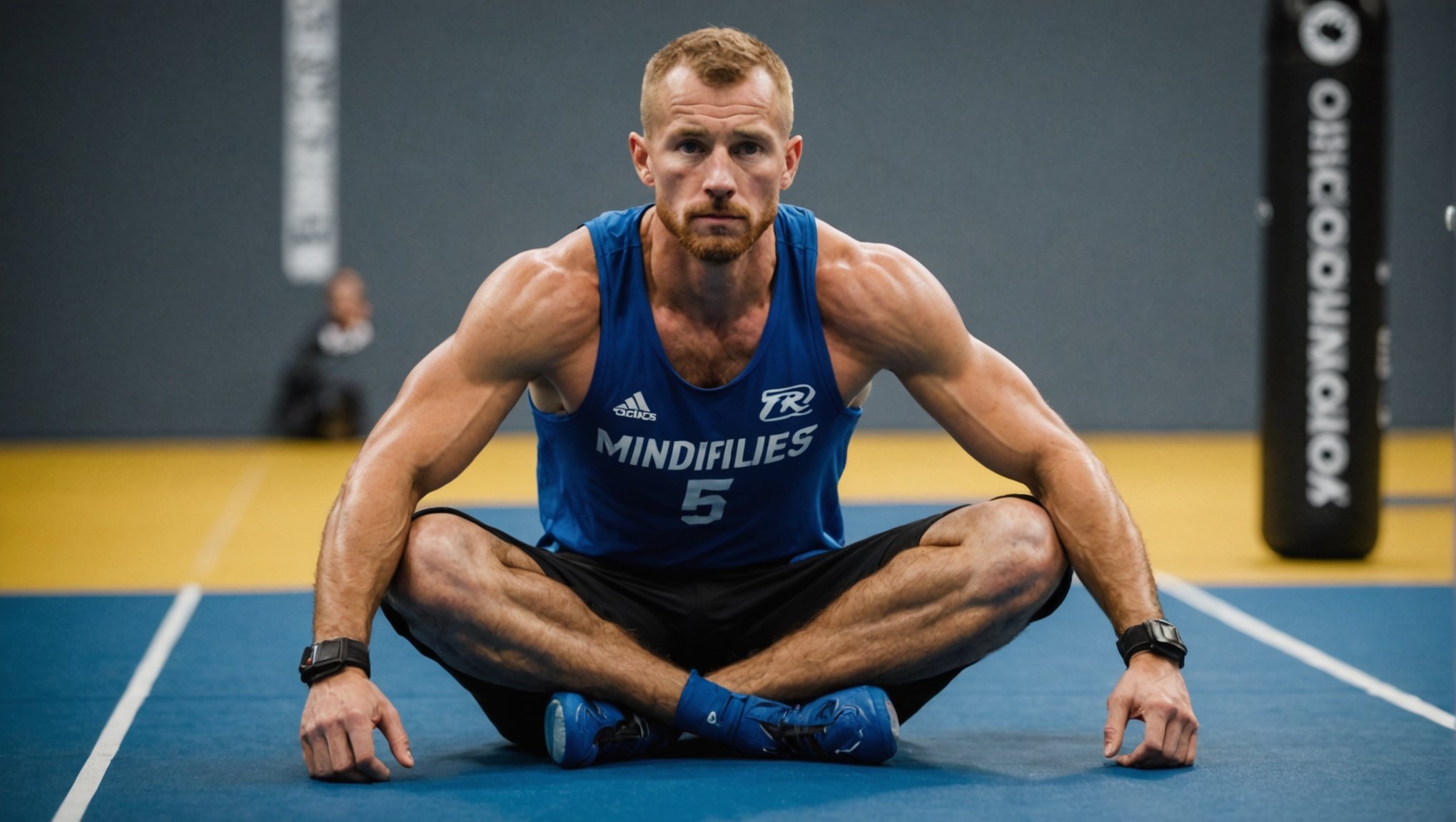Unlocking Competitive Potential: The Role of Mindfulness for UK Combat Sports Athletes
In the high-stakes world of combat sports, UK athletes are continually seeking ways to enhance their performance and gain a competitive edge. While physical training is undoubtedly crucial, the mental aspect of sports performance has become increasingly recognized as a key factor in achieving peak performance. This article delves into the role of mindfulness in helping UK combat sports athletes unlock their full potential.
Understanding Mindfulness in Sports
Mindfulness, a practice rooted in meditation and awareness, has been adapted into various sports contexts to improve athletic performance. It involves being fully present and engaged in the current moment, without judgment. For combat sports athletes, mindfulness can be a powerful tool to enhance mental toughness, manage stress, and improve overall well-being.
Also read : Unlocking Recovery: The Vital Role of Heart Rate Variability for UK Combat Sports Athletes
How Mindfulness Works
Mindfulness works by training the mind to focus on the present moment, reducing distractions and enhancing concentration. Here are some key ways mindfulness impacts athletes:
- Improved Focus: By practicing mindfulness, athletes can improve their ability to stay focused during competitions, ignoring external distractions and maintaining a clear mental state.
- Stress Reduction: Combat sports are inherently stressful, but mindfulness techniques such as deep breathing and meditation can help athletes manage stress levels, leading to better performance under pressure.
- Enhanced Resilience: Mindfulness helps athletes develop resilience by teaching them to handle setbacks and failures more effectively. This mental strength is crucial in combat sports, where losses are inevitable.
- Better Health: Mindfulness has been linked to improved physical health, including lower blood pressure and a stronger immune system, which are essential for athletes who need to maintain peak physical condition.
Integrating Mindfulness into Training
Integrating mindfulness into a training regimen can be straightforward and highly beneficial. Here are some practical ways UK combat sports athletes can incorporate mindfulness:
Also read : Unlocking Success: Effective Tactical Strategies for UK Judo Competitors in Match Preparation
Mindfulness Exercises for Athletes
- Meditation Sessions: Regular meditation sessions, even as short as 10-15 minutes a day, can help athletes develop greater mental clarity and focus.
- Breathing Techniques: Deep breathing exercises can be done anywhere and help athletes calm their nerves and focus before a match.
- Body Scan: A body scan involves lying down or sitting comfortably and focusing on different parts of the body to release tension. This can help athletes relax and recover after intense training.
- Mindful Movement: Practices like yoga or tai chi combine physical movement with mindfulness, helping athletes improve their flexibility, balance, and overall physical awareness.
Case Studies and Success Stories
Several UK combat sports athletes have already seen significant benefits from incorporating mindfulness into their training.
Example: Anthony Joshua
Anthony Joshua, the renowned British boxer, has spoken about the importance of mental preparation in his training. He has used mindfulness and meditation to stay focused and composed under pressure, which has been a key factor in his success.
“Mental preparation is just as important as physical training. It helps me stay focused and calm, even in the most intense moments of a fight,” – Anthony Joshua.
The Psychological Benefits of Mindfulness
Mindfulness is not just about improving performance; it also has profound psychological benefits that can enhance an athlete’s overall well-being.
Reducing Stress and Anxiety
Combat sports can be highly stressful, and the pressure to perform can lead to anxiety. Mindfulness techniques can help athletes manage these feelings more effectively.
| Technique | Description | Benefit |
|---|---|---|
| Meditation | Focused mental exercise to achieve a state of calm | Reduces stress and anxiety |
| Deep Breathing | Conscious breathing to calm the mind and body | Lowers heart rate and blood pressure |
| Body Scan | Focusing on different body parts to release tension | Enhances relaxation and recovery |
Improving Mental Health
Mindfulness can also play a crucial role in maintaining good mental health, which is essential for athletes who often face intense pressure and scrutiny.
“Mindfulness has been a game-changer for me. It helps me manage the stress and pressure of competing at a high level,” – A UK MMA Athlete.
Overcoming Challenges with Mindfulness
While mindfulness is highly beneficial, there are challenges that athletes may face when incorporating it into their routine.
Addressing Skepticism
Some athletes might be skeptical about the benefits of mindfulness, especially if they are used to more traditional training methods.
- Evidence-Based Results: Sharing evidence-based studies and success stories from other athletes can help alleviate skepticism.
- Starting Small: Encouraging athletes to start with short, manageable mindfulness sessions can make the practice feel less daunting.
Balancing Mindfulness with Physical Training
Athletes often have packed training schedules, making it challenging to find time for mindfulness practices.
- Incorporating Mindfulness into Daily Routines: Athletes can incorporate mindfulness into their daily routines, such as during warm-ups or cool-downs.
- Using Technology: There are numerous apps and online resources that offer guided mindfulness sessions, making it easier for athletes to fit mindfulness into their busy schedules.
Practical Insights and Actionable Advice
Here are some practical tips and advice for UK combat sports athletes looking to integrate mindfulness into their training:
Creating a Mindfulness Routine
- Start Small: Begin with short sessions (5-10 minutes) and gradually increase the duration as you become more comfortable with the practice.
- Consistency: Aim to practice mindfulness at the same time every day to make it a habit.
- Find a Quiet Space: Identify a quiet, comfortable space where you can practice mindfulness without distractions.
Leveraging Technology
- Mindfulness Apps: Use apps like Headspace or Calm that offer guided meditation and mindfulness exercises.
- Online Resources: Utilize online platforms that provide mindfulness training specifically designed for athletes.
Seeking Professional Help
- Sports Psychologists: Consult with sports psychologists who specialize in mindfulness and mental training.
- Mental Training Coaches: Work with coaches who have experience in mindfulness and mental toughness training.
Mindfulness is a powerful tool that can help UK combat sports athletes unlock their full potential. By integrating mindfulness into their training regimens, athletes can improve their focus, resilience, and overall performance. While there may be challenges, the benefits of mindfulness far outweigh the difficulties, making it an invaluable addition to any athlete’s training program.
In the words of Dawn Grant, a mental training expert, “The world’s top competitive athletes have undeniable skill and talent. Beyond their mechanical brilliance is an even more impressive mental prowess. Great athletes succeed because they know how to stay at the top of their mental game.”
By embracing mindfulness, UK combat sports athletes can not only enhance their athletic performance but also improve their mental health and well-being, leading to a more balanced and successful career in sports.










